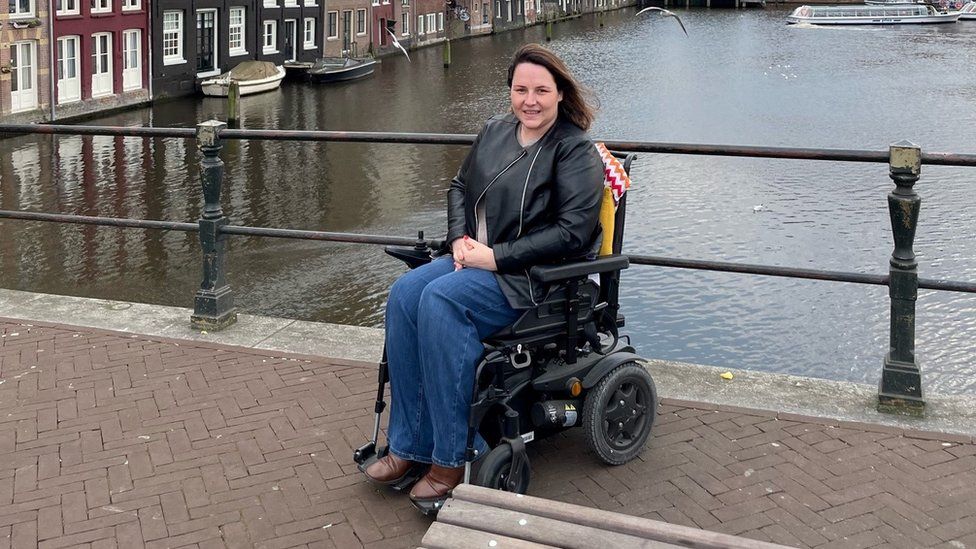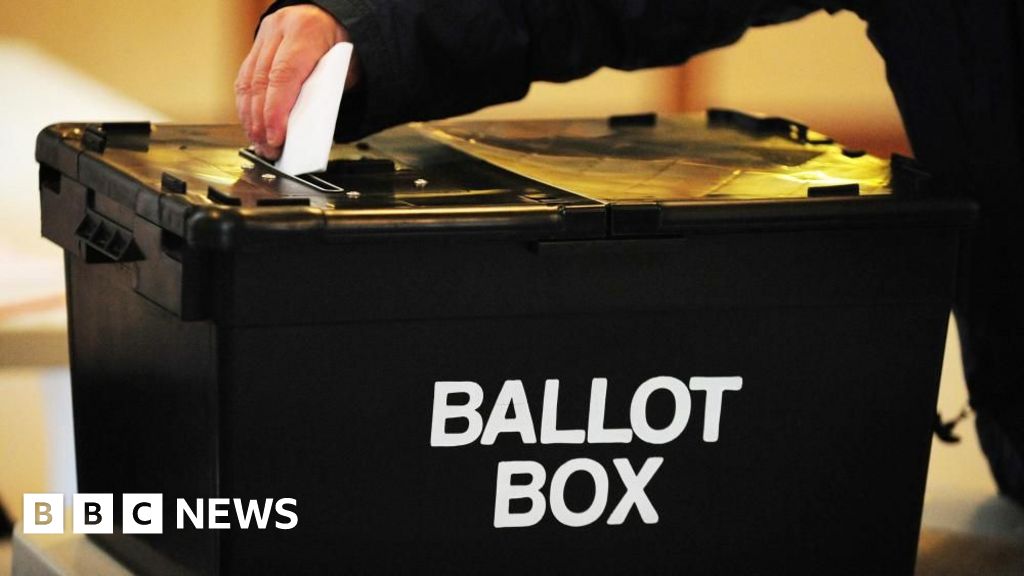ARTICLE AD BOX
 Image source, Sam Jennings
Image source, Sam Jennings
Sam Jennings said: "I don't want people to do something for me that I'm perfectly able to do myself"
A disability activist from London felt "dehumanised" after she was prevented from handing over a letter at No 10's door because suitable wheelchair ramps weren't provided.
Sam Jennings, 44, was invited to Downing Street after campaigning for rail accessibility improvements.
"If you can't get the culture right at Downing Street, then what chance or hope have we even got?," she said.
A No 10 spokesperson said they "aim to facilitate any requests made".
Ms Jennings, from Streatham in south London, said she wrote to the prime minister in order to draw his attention to the accessibility issues many disabled rail passengers face.
She said since she began using a type of electric wheelchair called a powerchair, she has experienced more than 30 "zero access fails" in 18 months.
These range "from being left on trains, to people refusing to help me with the ramp", she added, and she is often made to feel like her disability is an "inconvenience".
"If you can't get it right this many years after the Disability Discrimination Act and Equality Act, something's got to change," she continued.
"I wrote a letter to Rishi Sunak and I was invited to go with a group handing in a petition so I could get clearance to go hand my letter in myself. I had written a three page letter to him saying sorry, this is happening on your watch, this is what's going on."
However, when Ms Jennings arrived at Downing Street she said she was unable to get from the pavement up the steps to the front door of No 10.
She said: "I asked them to put the ramp up for the front step but when they put that ramp up on the pavement, I couldn't actually go along the pavement and turn onto the ramp because there wasn't enough space left.
"I told the man I want to knock on the door myself. I made it very clear explicitly that 'I'd like to knock on the door myself please' and I said that a couple of times.
"They kept saying 'okay, well there probably is a different ramp in the back somewhere', but didn't make any effort to go get it."
'Two ramps available'
A spokesperson for No 10 said: "We take wheelchair access extremely seriously and make two ramps available depending on need, for those either approaching from the road or the street.
"We always aim to facilitate any requests made."
But Ms Jennings said the response from No 10 was "impersonal" and while she didn't want to complain about individual staff, better procedures need to be in place.
"It was an appalling example. It was dehumanising. The second I said I wanted to knock on the door myself he should have said 'hold on I will get a different ramp because that won't be suitable'.
"I'm an adult and I want to do it myself like anyone else," she continued.
"I don't want people to do something for me that I'm perfectly able to do myself. I feel it's my right to go and knock on a door myself and deliver a letter.
"Why can't I knock on that iconic door like everybody else?"
She added: "If you can't get the culture right at Downing Street, then what chance or hope have we even got with the railway?"
Responding to the contents of Ms Jenning's letter, a government spokesperson said: "Our Access for All programme has delivered step free accessible routes at over 200 stations, with additional improvements at over 1,500 stations.
"By modernising the railway and moving staff out of ticket offices, we can enable them to provide more face-to-face assistance, so all passengers get the help they need."
Follow BBC London on Facebook, Twitter and Instagram. Send your story ideas to hellobbclondon@bbc.co.uk
Related Internet Links
The BBC is not responsible for the content of external sites.

 2 years ago
37
2 years ago
37








 English (US) ·
English (US) ·